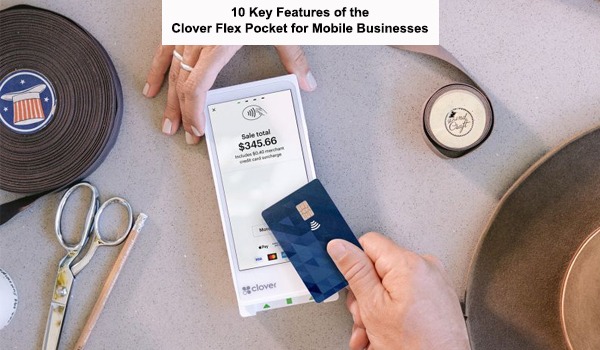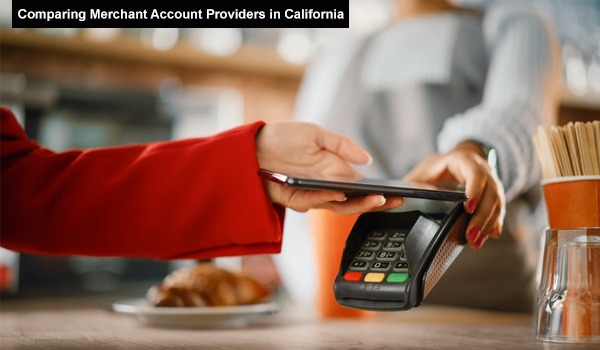
Introduction
Choosing the right merchant account provider is crucial for businesses operating in California's dynamic and competitive landscape. A good merchant account facilitates smooth payment processing, enhances customer satisfaction, and can significantly affect your bottom line. This guide will explore some of the top merchant account providers, including Square, Clover, First Data, and more, helping you make an informed decision that aligns with your business needs.
First Data (now Fiserv)
Overview
First Data, now a part of Fiserv, is one of the largest payment processors in the world. It offers a wide range of services, including payment processing, POS solutions, and e-commerce tools. Their experience and robust technology make them a reliable choice for businesses of all sizes.
Features
- Diverse Payment Options: First Data supports various payment methods, including credit, debit, mobile, and e-checks.
- Advanced Security Features: With tools like EMV processing and fraud detection, First Data places a strong emphasis on security.
- Comprehensive Reporting Tools: Businesses can access in-depth reporting and analytics to monitor sales and customer behavior.
Pros and Cons
Pros
- Scalable solutions for businesses of all sizes.
- Excellent security measures.
- Comprehensive customer support options.
Cons
- Costly equipment leases may not suit businesses on a budget.
- High recurring account fees can add up over time, impacting smaller businesses or those with lower transaction volumes.
Ideal For
Larger businesses or enterprises that require robust payment processing capabilities and extensive support.
Clover
Overview
Clover, owned by Fiserv, provides a versatile range of payment processing solutions tailored for various businesses. Known for its customizable POS systems, Clover caters to retailers, restaurants, and service providers alike.
Features
- Customizable POS Systems: Clover offers various hardware options, from countertop terminals to mobile card readers, allowing businesses to choose according to their needs.
- App Marketplace: Clover has an extensive app marketplace, enabling businesses to integrate various third-party applications for accounting, inventory management, and marketing.
- Flexible Pricing Plans: Clover offers different pricing plans, including a flat-rate option and tiered pricing, making it suitable for businesses of all sizes.
Pros and Cons
Pros
- Highly customizable and feature-rich.
- Strong support for restaurants and retail businesses.
- Reliable customer service.
Cons
- Higher initial equipment costs.
- It may require a long-term contract.
Ideal For
Businesses looking for a flexible, customizable payment processing solution, particularly in the retail and food service sectors.
Square
Overview
Square is one of the most recognized names in payment processing, especially for small businesses. Founded in 2009, Square has multiplied by offering a user-friendly platform that simplifies payment acceptance across various channels.
Features
- Point of Sale (POS) System: Square offers a comprehensive POS solution that can be used in-store or online. Its software is easy to navigate and comes with robust inventory management features.
- No Monthly Fees: There are no hidden fees or long-term contracts, making it an attractive option for startups and small businesses.
- Integrated E-commerce Solutions: Square’s online store integration allows businesses to sell products seamlessly through their websites and social media channels.
Pros and Cons
Pros
- Easy setup and user-friendly interface.
- Versatile solutions for different business types.
- Excellent mobile payment capabilities.
Cons
- Limited features for larger businesses.
- Higher fees for international transactions.
Ideal For
Small to medium-sized businesses need a straightforward and flexible payment solution, particularly those with retail and e-commerce operations.
PayPal
Overview
PayPal is a well-known name in the online payment industry, providing solutions for both online and brick-and-mortar businesses. Its brand recognition and trust make it a preferred choice for many consumers.
Features
- Quick Setup: PayPal allows businesses to start accepting payments almost instantly, which is ideal for startups and online sellers.
- Invoicing and Recurring Payments: PayPal supports invoicing and subscription-based billing, making it suitable for service-based businesses.
- Mobile Payments: With PayPal Here, businesses can accept payments on the go via mobile devices.
Pros and Cons
Pros
- Instant access to funds.
- Strong brand recognition boosts customer confidence.
- Easy integration with e-commerce platforms.
Cons
- Transaction fees can become costly, especially for businesses with low-value sales.
- Customer support can be lacking for some users.
Ideal For
Small to medium-sized businesses, particularly those that primarily operate online or offer subscription services.
Stripe
Overview
Stripe is a technology company that offers payment processing solutions for online businesses. It is highly favored by tech-savvy entrepreneurs and startups due to its developer-friendly interface and customizable features.
Features
- Robust API: Stripe’s powerful API allows for easy integration into websites and applications, making it highly customizable.
- Recurring Billing: Stripe excels at handling subscriptions and recurring payments, making it ideal for SaaS and membership-based businesses.
- Multi-Currency Support: Stripe supports payments in multiple currencies, catering to international customers.
Pros and Cons
Pros
- Developer-friendly with extensive documentation.
- Transparent pricing structure.
- Excellent fraud prevention tools.
Cons
- Not as user-friendly for those without technical expertise.
- May require additional setup for advanced features.
Ideal For
Tech-savvy businesses and startups that require a customizable payment solution for online transactions.
Adyen
Overview
Adyen is a global payment provider that offers a unified commerce solution, allowing businesses to accept payments in-store, online, and via mobile. Its sophisticated technology and reporting tools make it a go-to choice for medium to large enterprises.
Features
- Unified Commerce: Adyen provides a single platform for managing all payment types across channels, simplifying the payment process.
- Comprehensive Analytics: Businesses can access detailed reporting and analytics to gain insights into sales and customer behavior.
- Fraud Protection: Adyen employs advanced machine learning algorithms to detect and prevent fraud.
Pros and Cons
Pros
- Strong support for international transactions.
- Excellent reporting tools.
- Flexible payment options for customers.
Cons
- More complex setup process.
- Higher fees for smaller businesses.
Ideal For
Medium to large enterprises looking for an advanced, integrated payment solution across various sales channels.
Worldpay
Overview
Worldpay is a global leader in payment processing, providing a wide range of solutions tailored for businesses of all sizes. It offers a strong combination of in-store and online payment solutions.
Features
- Flexible Payment Solutions: Worldpay supports numerous payment methods, including credit/debit cards, mobile payments, and e-wallets.
- Advanced Security Measures: Offers strong fraud protection and PCI compliance features.
- Dedicated Customer Support: Provides comprehensive customer service options, including 24/7 support.
Pros and Cons
Pros
- Comprehensive service offerings for all business types.
- Strong security protocols.
- Flexible contract options.
Cons
- Pricing can be complicated and vary based on the services used.
- Customer service response times have been reported to be slower than expected.
Ideal For
Businesses of all sizes seeking a comprehensive and reliable payment processing solution.
Conclusion
Selecting the best merchant account provider for your business in California is a decision that can significantly impact your operations and customer satisfaction. Each provider discussed here—Square, Clover, First Data, PayPal, Stripe, Adyen, and Worldpay—offers unique features and benefits tailored to different business needs.
When evaluating your options, consider factors such as transaction fees, ease of setup, customer support, and the specific needs of your business. With the right merchant account provider, you can streamline payment processing, enhance customer experience, and ultimately drive growth in California's competitive market.









